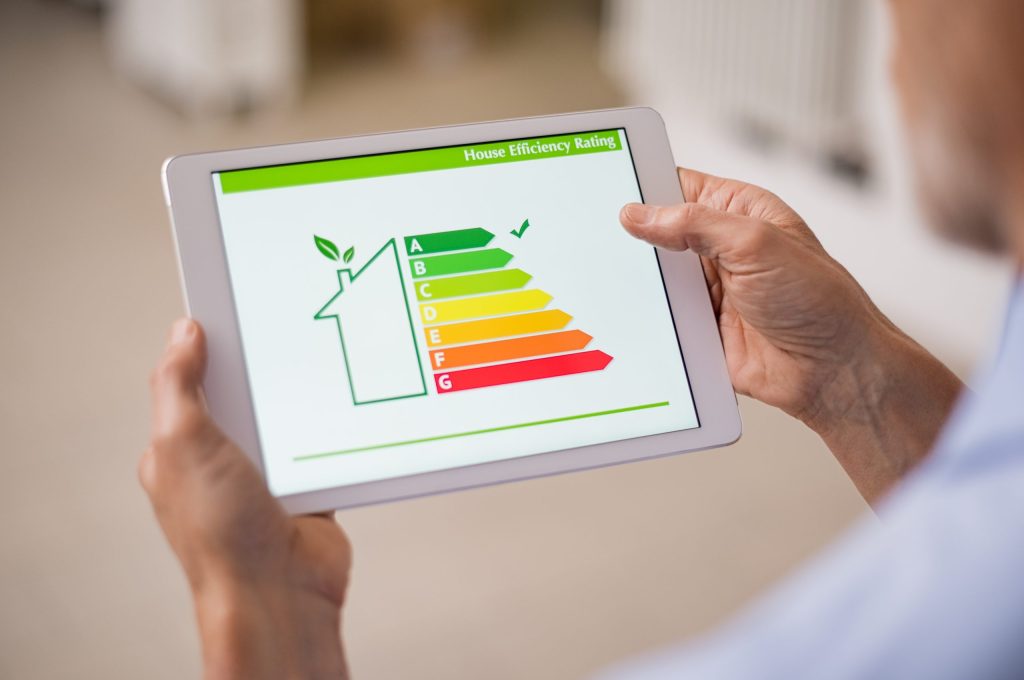Better use of EPCs suggest the Houzen team. Introduced to the UK back in 2007, as part of Home Information Packs, Energy Performance Certificates (EPCs) are now required for any building that is built, sold or rented. While Home Information Packs fell by the wayside, EPCs have become a core part of how we assess energy performance within the UK’s properties.
EPCs were founded in European Union Directive 2002/91/EC before being enshrined in UK law by the Housing Act 2004 and the Energy Performance of Buildings (Certificates and Inspections) (England and Wales) Regulations 2007. They rate buildings from A to G, based on their energy efficiency and carbon emissions.
EPCs have, at various times during their history, been viewed as something of an irritation by those looking to sell or rent out properties. Initially, it was the cost and hassle of EPCs that irked those who were obliged to obtain them. More recently, it has been the announcement of the need for rental properties to have a rating of E or above that has irritated landlords. From 2023, the Minimum Energy Efficiency Standards mean that it will be illegal for privately rented property to be let with an F or G rating, even if the lease is in the middle of its term.
“EPCs have had a bit of a rough ride, with many viewing them as an administrative hassle. However, they have done much to make us more aware of energy performance issues. Now, with the UK legally obliged to cut emissions by 78% by 2035, EPCs can play a key role in helping us to re-evaluate energy use in our buildings. And with the right approach to technology, they can become dynamic tools that help us progress more swiftly towards Net Zero.”Saurabh Saxena, Founder, houzen
Property value growth platform houzen is calling for increased use of artificial intelligence (AI) and machine learning to help EPCs deliver more value and support properties to progress up the ratings faster. At present, 19 million of the UK’s 29 million homes have an EPC rating lower than C. And even those with a rating of C or above can make changes to enhance their energy efficiency. According to houzen’s algorithms, a total of 21.3 million UK properties need some kind of sustainable retrofit in order to start making a positive impact on the planet.
The company is already using a blend of artificial intelligence and human expertise to deliver action-focused sustainability reports for UK property owners. houzen’s Sustainability Index draws on data about how properties across the country perform on 27 key issues impacting the climate. The performance of individual properties can be reviewed against the index to see how they compare. houzen then produces a report that details changes that can be made to improve the property’s energy performance and comes with a complete “plan of action”: project timeline, recommended sustainable features, detailed pricing and a list of service and product providers that could make this sustainable project happen.
The houzen team is quick to point out that it’s not just the planet that can benefit from better use of EPCs: sustainable properties can also generate more interest from renters and command a higher sale price. The firm hopes that this triple win will encourage the broader embracing of the potential of EPCs over the next 15 years and beyond.
“The tech that’s already available provides the potential to do so much more with EPCs than have them as static documents. Turning them into tools that can drive change would be a step-change in how we view EPCs and their value. Doing so would see homeowners, landlords and the planet all win at once.” Saurabh Saxena, Founder, houzen
To find out more, please visit www.houzen.co.uk


